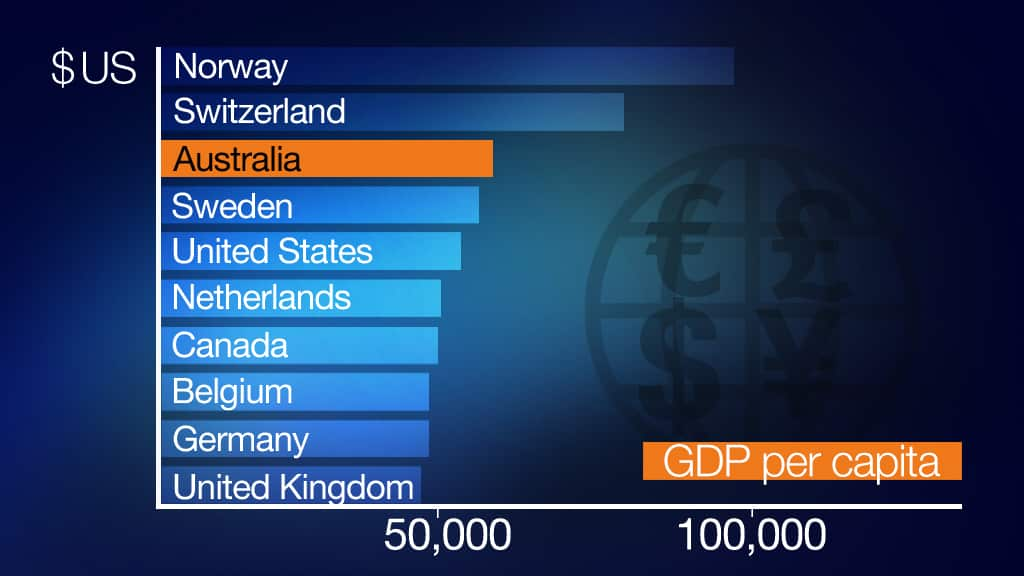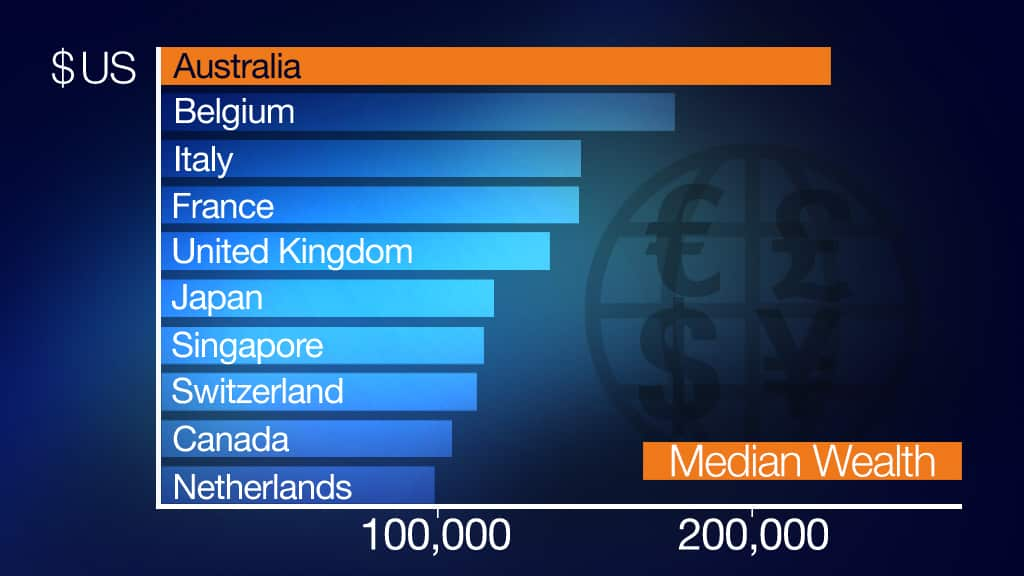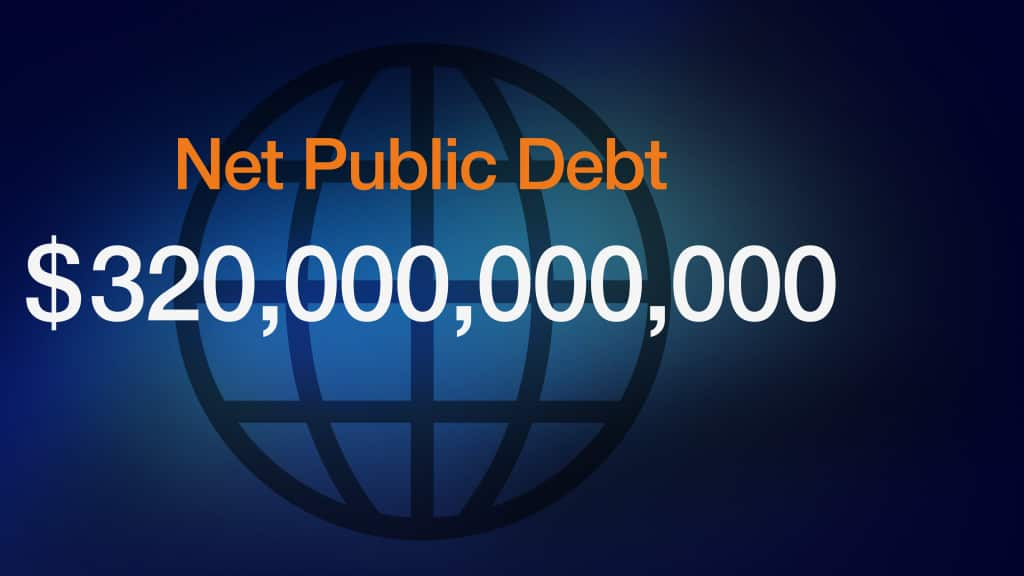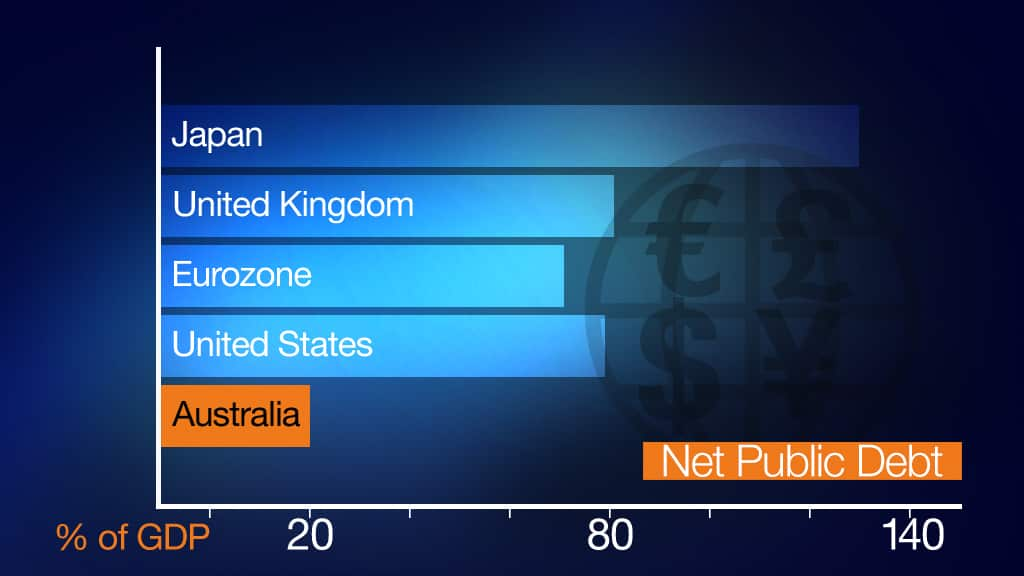It may not feel like it to some, but Australians are some of the richest people in the world.
When it comes to GDP per capita, which places a value on how productive a person is, Australians are in the top three, according to the International Monetary Fund.

KPMG Partner Bernard Salt said the Norwegians were the richest people in the world with an average of $US90,000 per man, woman or child, followed by the Swiss and then Australians.
"We might not think we're rich but in comparison with other nations, we are in fact a wealthy nation," he said.
"Twenty-four million people commanding the resources of an entire continent - no other nation makes that claim, not even the Americans. We should be a rich people for generations. The question is, how do we distribute that wealth?"
Global investment company Credit Suisse said Australians had the highest median wealth per adult when measured in US dollars, at $US225,000, followed by Belgium and Italy.

AMP Capital Chief Economist Shane Oliver said that number considered income and assets.
"That reflects the combination of a healthy sharemarket over a long run and healthy gains in Australian house prices," he said.
Australians are having to work harder to buy a home though, especially in Sydney, where it takes 10 times the average full-time annual income. It was just five times 30 years ago.
Bernard Salt conceded income growth had slowed.
"It is a little bit like when you're driving your car in the country - you're driving at 100 kilometres an hour - and you come into a town, you're travelling at 60, it feels like you've slowed to a walk," he said. "The reality is we've come from a high base and we're slowing down, but we're still progressing."
The government meanwhile will need to lift its income to pay off its borrowings, which currently stands at roughly $A320 billion.

While net public debt relative to the economy stands at 20 per cent, it is four times lower than comparable economies like Japan and the US.

Shane Oliver said in the scheme of things, Australians did not have a lot to worry about at the moment and the government had five or six years to make inroads before the ageing population placed unsustainable pressure on the public purse.
"There is no doubt that having debt is a burden potentially and if we don't control it over the years ahead, it could become a problem," he said.
"For example we are seeing the population age, and that puts pressure on pension payments, health spending and so on. If we don't slow that in some way we could end up with a debt problem down the track which could mean that tax rates would have to rise and that's a burden for Australian households or government spending and welfare payments would have to be slashed."

